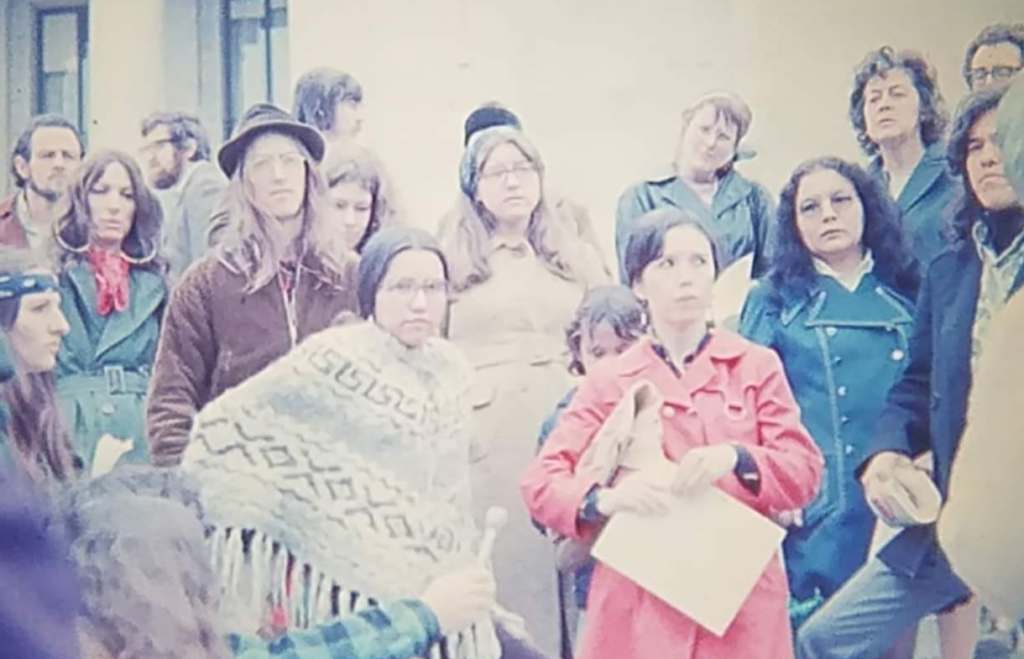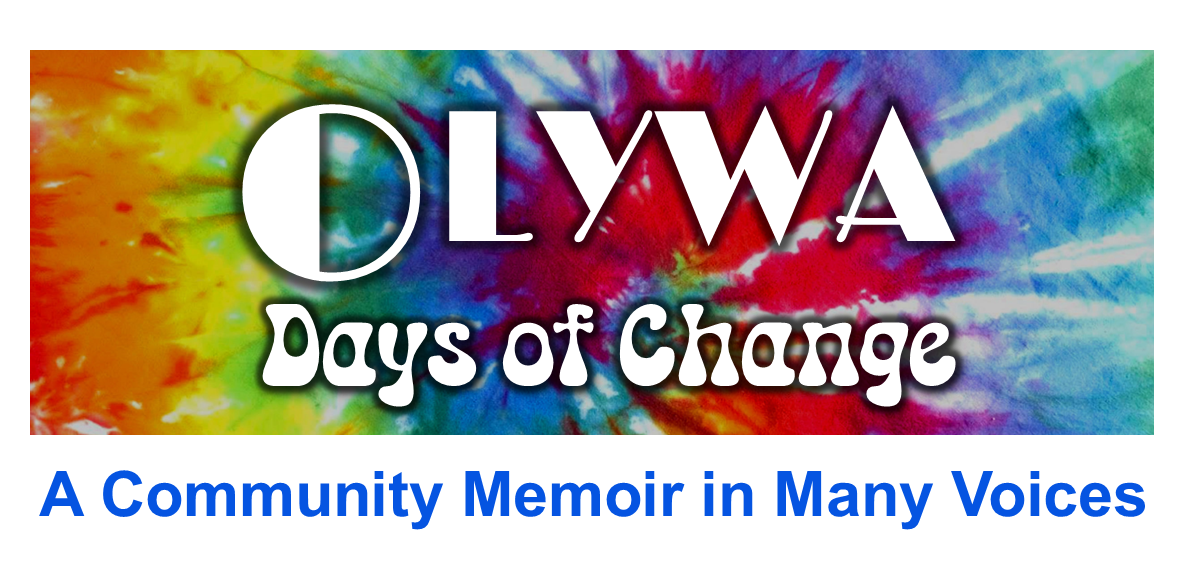FIRST PEOPLES
One Moment of a Long History of Successful Activism
By Ramona Bennett

I was elected to Puyallup Council in 1968. The Bureau of Indian Affairs (BIA) continued to recognize the prior council for a long time. Our government and members were unrecognized, unprotected, and unserved. We had done the armed fishing camp which eventually [resulted in] the Boldt Decision. I was now ready to push for services. The Everett BIA is the agency for our tribes. Despite the lack of formal recognition, Don Smouse, Paul Carter, and my mom’s cousin Bernice (Lawrence William’s wife) all worked there helping me identify contracts we were eligible for and fill out applications and write grants. I worked really hard on my portable manual typewriter. We were all going to D.C. on the Trail of Self Determination Caravan in 1972, so I brought our contract applications with me so I could hand deliver them. What happened there has been the plot of many articles and books.
We got to D.C. and our accommodations were totally not okay, although the agencies offering the space did so with love and concern. It was a huge ancient Episcopal church (they helped all the way), and when we started to enter we disturbed the rats. BIG RATS! We backed off. The D.C. Indians and the government knew they had a caravan of 1,500 plus Indians from AIM and (if I do say so myself) Puyallup had a warlike reputation. They told us to go to the Bureau of Indian Affairs building and wait. They told us the Department of Commerce auditorium was being prepared and kitchens, tents, showers and lavs would be set up. So we went to the BIA.
HEY!! WE’RE GOING RIGHT TO THE BIA! Puyallup’s contracts! When we got to the building I asked for the contract office and went right there. Everything gets mailed so a couple of light skinned guys and a couple of Indian girl clerks came and sat with me and I showed them what I was applying for.
All of the sudden there was thumping, running, screaming, yelling in the hall and rest of the building.
I went out in the hall to find out what was going on. GSA PIGS HAD ATTACKED THE INDIANS CLOSEST TO THE DOOR WITH CLUBS!! Broken bones and blood everywhere! People all bloody running down the halls. In the main office was a ticker tape machine. That’s how news used to be sent in the olden days. Lonnie Healy, a reporter from Peoples World newspaper, threw herself on the ticker tape machine which was about as big as a big Xerox machine. She was yelling at these really tall Montana boys, “don’t break it … it’s how we’ll get information ABOUT US!!”
I asked the boys if they’d come with me. We went back to contracting. I explained what was happening in the building. Things were being broken and thrown around. I told them all, we needed to get out of the building (including good old Puyallup, of course). And [with the] active contracts. If they were destroyed we would be known as the stupid militants who screwed everything up. I asked if they had boxes. One of the girls said, “they’re in boxes” and pulled out a drawer. The men looked at her admiringly. One of the guys tracked down vehicles. The boys went to get help. Just like that (finger snap) we saved some real headaches, and I had forever friends in contracting. The men left with the files. The Indian clerks told them they were staying because they had family with the caravan. Our guys packed it out. Just as quickly as the attack against us started . . . it stopped. I did not know for a long time that Hank Adam’s was doing the same thing with other valuable documents in another part of the building.
Someone announced that D.C. is a tough town and we should not leave things of value in our vehicles which could get towed. I looked out the window at the people carrying in bundles. Several had sleeping bags and star quilt bundles exactly the length of a hunting rifle.
We were in that building for a week. I’m sure there are books about it. You can’t imagine how close we came to being blown up. One night there was no restraining order protecting us and even the Quakers and communists were gone. The army was supposed to come at us so the whole building was set to blow and burn.
Because I was the chairwoman of a tribe I got to blend in with the respected Indian leaders the government flew in to denounce us.
Imagine my surprise when I heard myself read into the Congressional Record as one of the nine most radical, militant, bloodthirsty Indians in the country. I was the only woman to make the list. Boy was Anita Collins pissed. She said she was at least as bloodthirsty as I was. I don’t know for sure who the other eight are.
We encourage readers to contact us with comments and corrections. Disclaimer
